No facility’s processes can be fully efficient if the equipment isn’t well maintained and in optimal condition. Yet when using harsh or unstable chemicals, facilities often risk damage and premature failure of their equipment.
Today’s pharmaceutical and biotechnology plants, for instance, must be able to produce numerous products while meeting both traditional and advanced needs for product purity, cleanability, durability and, of course, low maintenance costs. If a stainless steel vessel reacts with a chemical, the entire batch of medicine or other product being produced must be tossed – wasting both time and money. In environments like this, traditional stainless steel and glass don’t necessarily deliver the best results.
With unmatched chemical resistance, fluoropolymer coatings can protect a facility’s capital investments in machinery and equipment, not to mention time.
Compatible with most pharmaceutical or biochemical processes, fluoropolymer coatings are non-reactive, so there are no corrosion byproducts to contaminate processes. Teflon® coatings are extremely pure, and unlike untreated stainless steel or glass, they were made specifically to resist the absorption of chemicals.
Teflon® also provides smooth non-wetting hydrophobic surfaces that resist bio-film buildup, and can be used with extremely strong cleaning solutions and steam-in-place processes.
Finally, unlike stainless steel, chemically resistant Teflon® doesn’t require costly passivation or electropolishing, nor does it crack like glass, meaning that maintenance costs will be lower.
At PCM, we’re proud to offer DuPont™ Teflon® industrial coatings that, with almost total chemical inertness, provide extreme chemical protection.
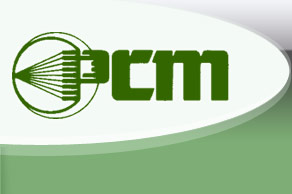


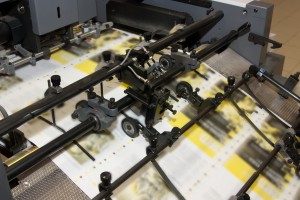 There was a time in this country when major cities had tens of different newspapers. In the 1940s New York City had as many as 11 daily newspapers fighting for readers. At the time, of course, there was no internet or CNN, so if you wanted to learn the latest news the paper was the best way to get it. Times have certainly changed. To put it in perspective, we have the same number of newspapers in the US as we did in 1890. Of course, we also have 243 million more people living in eight more states so that number is a good example of the newspaper’s downfall.
There was a time in this country when major cities had tens of different newspapers. In the 1940s New York City had as many as 11 daily newspapers fighting for readers. At the time, of course, there was no internet or CNN, so if you wanted to learn the latest news the paper was the best way to get it. Times have certainly changed. To put it in perspective, we have the same number of newspapers in the US as we did in 1890. Of course, we also have 243 million more people living in eight more states so that number is a good example of the newspaper’s downfall.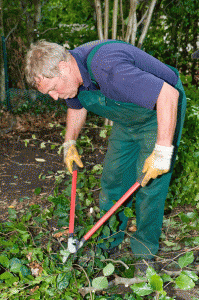 Nothing is lovelier than a beautiful garden. The smells, the colors, it’s all so wonderful and calming. That is if you don’t have to tend to one! Despite the hard work, bug bites, and sunburns, Americans love to garden, and they love to spend money on it as well. U.S. households spent $29.1 billion on their lawns and gardens in 2011 – about $351 per household each year. Some of those billions go to things like shears and scissors. These implements are great for pruning flowers, cutting grass, and even trimming hedges in cool shapes. Companies like Fiskars, Klein, and even Martha Stewart make shears and scissors in wide variety of sizes and shapes.
Nothing is lovelier than a beautiful garden. The smells, the colors, it’s all so wonderful and calming. That is if you don’t have to tend to one! Despite the hard work, bug bites, and sunburns, Americans love to garden, and they love to spend money on it as well. U.S. households spent $29.1 billion on their lawns and gardens in 2011 – about $351 per household each year. Some of those billions go to things like shears and scissors. These implements are great for pruning flowers, cutting grass, and even trimming hedges in cool shapes. Companies like Fiskars, Klein, and even Martha Stewart make shears and scissors in wide variety of sizes and shapes. Nothing says summer like a nice round of golf! Experts believe that 24 million people in the United States play golf on a regular basis. Out of those 24 million only 8,000 are professionals, so that leaves many golfers who may lose a golf ball or two (or 12) every time they play a round. It is one of the main reasons that companies like Nike, Titleist, Pinnacle, and Callaway manufacture and ship over 850 million golf balls each year. Most golf balls come in three varieties: two-piece, three-piece, and dimple-covered shell. Two-piece are the most common and account for about 70% of all sales. The other two are made for better golfers, thus their lower popularity.
Nothing says summer like a nice round of golf! Experts believe that 24 million people in the United States play golf on a regular basis. Out of those 24 million only 8,000 are professionals, so that leaves many golfers who may lose a golf ball or two (or 12) every time they play a round. It is one of the main reasons that companies like Nike, Titleist, Pinnacle, and Callaway manufacture and ship over 850 million golf balls each year. Most golf balls come in three varieties: two-piece, three-piece, and dimple-covered shell. Two-piece are the most common and account for about 70% of all sales. The other two are made for better golfers, thus their lower popularity.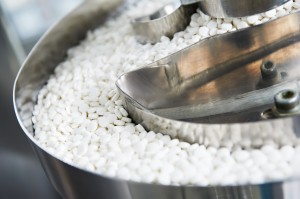 It seems like everywhere you look you see an ad for the latest prescription drug. From hair loss to heart disease, there is a drug out there to help you live a better, longer, happier life. In 2010 alone, the top 50 pharmaceutical companies sold $539.3 billion in prescription drugs. Industry giants like Novartis, Merck, and Pfizer make big profits, but they also spend unbelievable amounts of money to research, test, and manufacture the drugs that save lives every day. For every blockbuster drug like Lipitor that can bring in billions of dollars, there are those that never make it despite having millions poured into their development. So clearly this is an industry that can’t afford mistakes, both for the sake of profits and most importantly, the safety of those they serve.
It seems like everywhere you look you see an ad for the latest prescription drug. From hair loss to heart disease, there is a drug out there to help you live a better, longer, happier life. In 2010 alone, the top 50 pharmaceutical companies sold $539.3 billion in prescription drugs. Industry giants like Novartis, Merck, and Pfizer make big profits, but they also spend unbelievable amounts of money to research, test, and manufacture the drugs that save lives every day. For every blockbuster drug like Lipitor that can bring in billions of dollars, there are those that never make it despite having millions poured into their development. So clearly this is an industry that can’t afford mistakes, both for the sake of profits and most importantly, the safety of those they serve.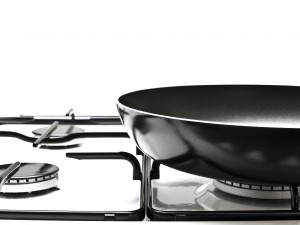 While known best as a nonstick cookware coating, Teflon® is also used in everything from cars to buildings.
While known best as a nonstick cookware coating, Teflon® is also used in everything from cars to buildings. Here is a number that will jump off the page: In 2011, U.S. restaurants exceeded $600 billion in sales. In 1955, American’s only spent 25% of their food dollar on dining out, but now they spend almost 50%. Along with the rest of the world, America has become a country that eats on the run. In order to keep up with these staggering numbers, the food industry has had to lean heavily on innovative companies like PCM in order to produce an ever-increasing volume of consistent and high quality foodstuffs.
Here is a number that will jump off the page: In 2011, U.S. restaurants exceeded $600 billion in sales. In 1955, American’s only spent 25% of their food dollar on dining out, but now they spend almost 50%. Along with the rest of the world, America has become a country that eats on the run. In order to keep up with these staggering numbers, the food industry has had to lean heavily on innovative companies like PCM in order to produce an ever-increasing volume of consistent and high quality foodstuffs. Dupont’s™ Teflon® coating is truly a miracle of modern science. Everything from baking pans to biocompatible surgical instruments are coated in Teflon to prevent sticking, friction, and wetting. However, did you know that Teflon or Polytetrafluoroethylene (PTFE) could actually make your guitar sound better?
Dupont’s™ Teflon® coating is truly a miracle of modern science. Everything from baking pans to biocompatible surgical instruments are coated in Teflon to prevent sticking, friction, and wetting. However, did you know that Teflon or Polytetrafluoroethylene (PTFE) could actually make your guitar sound better?
Follow us on: